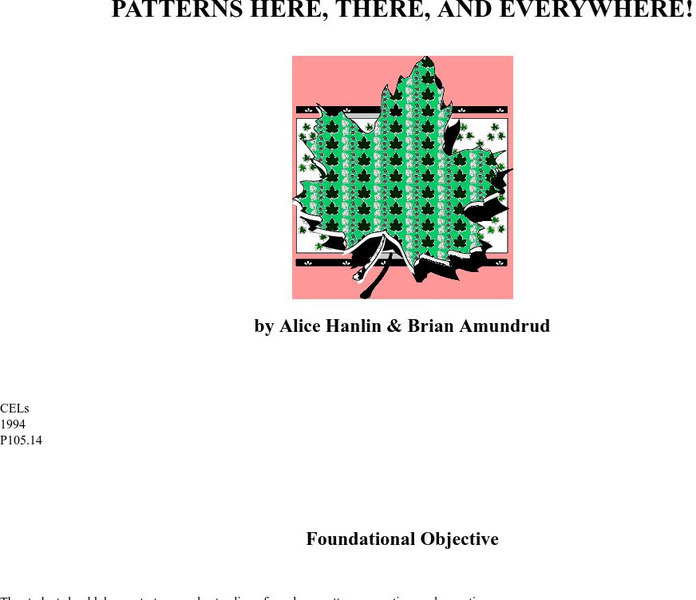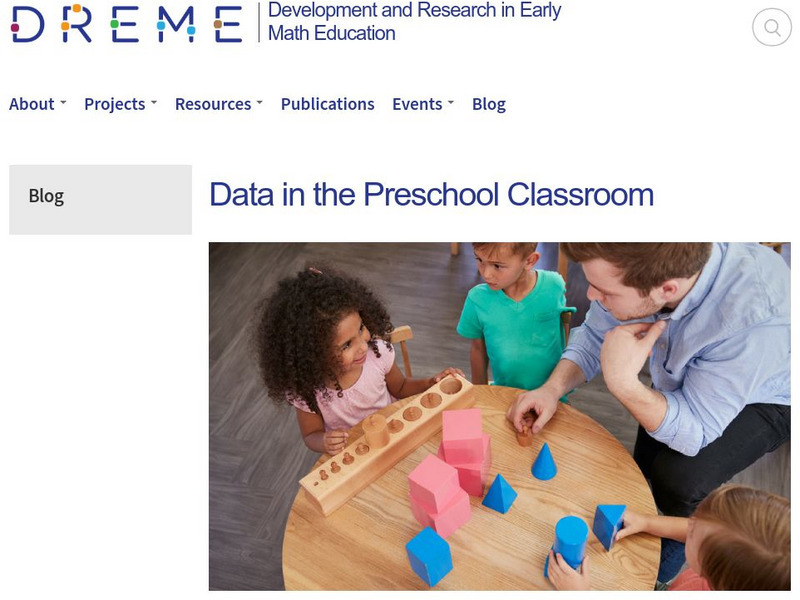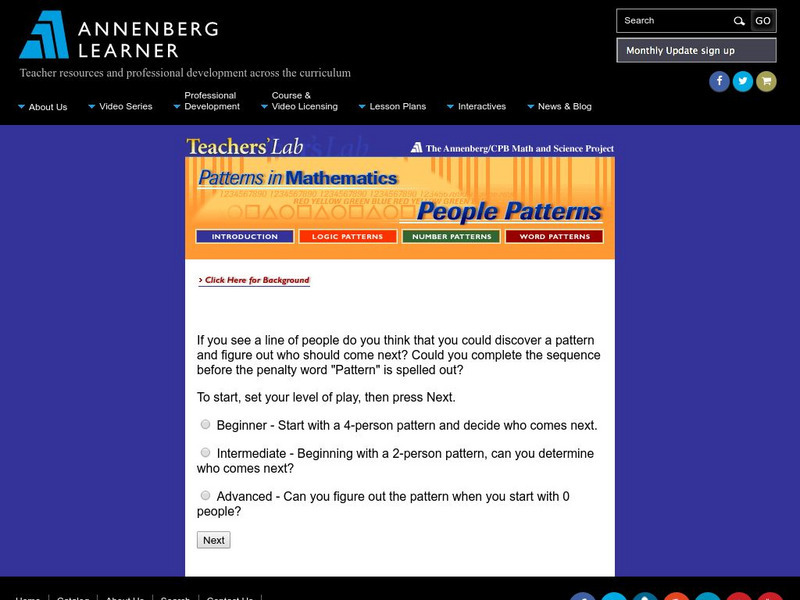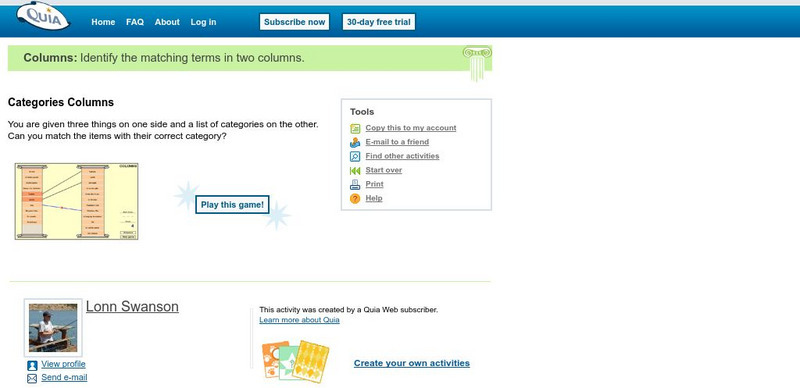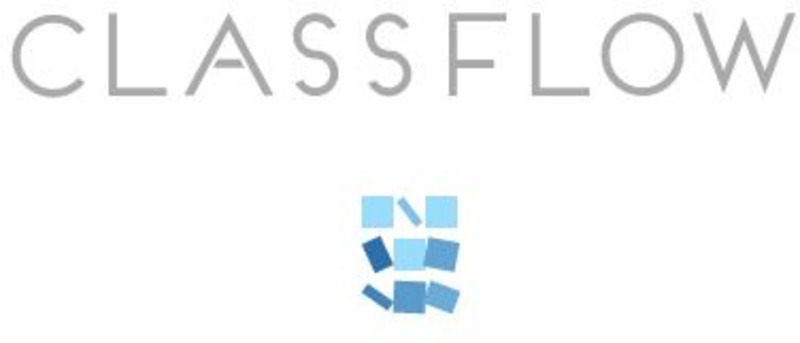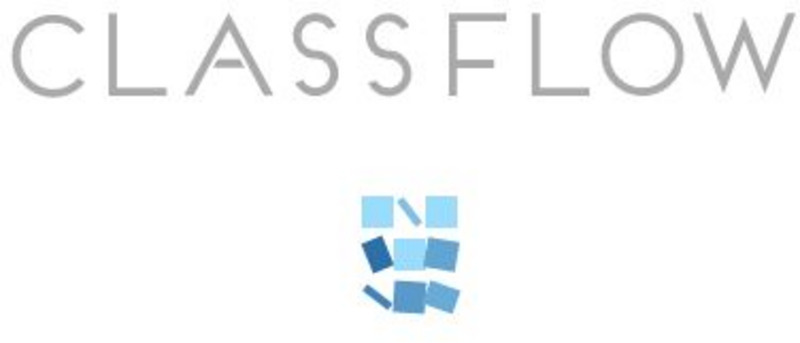Science Education Resource Center at Carleton College
Serc: Investigating Plant Life in Our Nature Center
In this Nature Center activity, students will apply knowledge from our classifying living things unit. They will compare what they already know about leaves to actual leaf samples. After collecting 5 leaves and keeping them in a journal,...
Smithsonian Institution
Smithsonian in Your Classroom: Teaching With Collections [Pdf]
This lesson is great for young learners who like to collect things. It gives you ideas of ways to teach such concepts as classifying, sorting, arranging, multiplying, graphing, and measuring with collections of simple objects.
University of Regina (Canada)
Univeristy of Regina: Math Central: Patterns Here, There, and Everywhere
This lesson plan on early patterning is well written, well planned, and extensive. The math content is substantial for this age. There are lots of connections to other content areas. Materials needed are readily available or provided for...
National Council of Teachers of Mathematics
Nctm: Illuminations: Cutting Corners
Students will use their knowledge of plane figure attributes to create and view shapes by cutting and rotating shapes to stimulate discussions on names and attributes of various shapes they do not regularly encounter.
Stanford University
Dreme: Data in the Preschool Classroom
What are the important concepts involved in data collection and data use in the preschool classroom, and how can teachers support the mathematics of data? This article gives a brief description of the concepts that children need to grasp...
E-learning for Kids
E Learning for Kids: Science: Antilles: How Can We Classify Animals?
Naomi teaches diving and meets all kinds of animals underwater. Join her and learn about grouping animals.
E-learning for Kids
E Learning for Kids: Science: North Sea: Netherlands: What Is It Made Of?
Finn is joining his father on their boat. Join them and help Finn sort materials based on their properties.
E-learning for Kids
E Learning for Kids: Science: North Sea: How Do We Choose Materials to Make Objects?
Help Emilie keep the winery stable and sturdy. Join her to learn about different materials and their properties.
Science Education Resource Center at Carleton College
Serc: Magnets: What "Sticks"
While working in small groups, students will learn about magnetism by exploring what does and does not "stick" to a manget. Students will learn that only objects made of metal stick to magnets but not all objects made of metal stick.
Math Is Fun
Math Is Fun: Regular 2 D Shapes
This tutorial provides illustrations for regular 2-D shapes as well as a definition for polygons and for regular polygons.
Everything ESL
Everything Esl: Categorizing & Classifying Animals
Teach your students about categorizing and classifying with this high thinking level unit. It features many downloads and resources. It also provides bulletin board ideas.
Everything ESL
Everything Esl: Categorizing & Classifying Animals
Teach your students about categorizing and classifying with this high thinking level unit. It features many downloads and resources. It also provides bulletin board ideas.
Smithsonian Institution
Smithsonian National Zoo: Classification Systems
A great overview of the science of classification. Topics addressed include summaries of the five kingdoms, the seven taxa, the definition of a species and the classification of the panda.
Annenberg Foundation
Annenberg Learner: Patterns in Mathematics: Guess My Button
This website gives students an opportunity to sort and classify attributes of a group. The applet responds to each selection made and guides student to the next step.
Annenberg Foundation
Annenberg Learner: Patterns in Mathematics: People Patterns
This interactive website offers young students an opportunity to discover the pattern and predict who will come next. Feedback and guidance are given for each response. It also offers three increasingly difficult levels that are available.
Better Lesson
Better Lesson: Count the Ways to Have Fun! Sorting on the I Pad
A part of the sorting and classifying standard that can be overlooked relates to assigning a number count to a group of similar objects. This lesson helps students find similar groups and practice counting and relating numbers to their...
Quia
Quia: Categories Battleship
In this interactive game, students try to sink the computer's battleships by naming the correct category for the words listed. There are three levels of play provided: Easy, Medium, and Hard.
Quia
Quia: Categories Columns
In this interactive game, students match groups of items on one column with categories on the other.
Quia
Quia: Rags to Riches: Categories Ladder
In this interactive, millionaire-style game, students see groups of three or four items and select the category that fits each group.
Quia
Quia: Rags to Riches: Category Ladder Iii
In this interactive, millionaire-style game, students see groups of three items and select the category that fits each group.
PBS
Pbs Mathline Lesson: Geometry, It's a Perfect Fit [Pdf]
This two-part geometry lesson plan has students identify, describe, and classify two-dimensional shapes. Students engage in hands-on activities including identifying shapes in the classroom, creating patterns with shapes, identifying...
Discovery Education
Discovery Education: Animal Classification
Use this lesson to help students understand the reasons for classifications and ways that different species are separated.
ClassFlow
Class Flow: Thinking Maps the Tree Map
[Free Registration/Login Required] Teach your students to visualize the writing process using this graphic organizer as a tool.
ClassFlow
Class Flow: Classifying and Categorizing
[Free Registration/Login Required] This flipchart has a variety of different pages that cover numerous things including classification, telling time, patterns, alphabet song, and penmanship.



![Smithsonian in Your Classroom: Teaching With Collections [Pdf] Lesson Plan Smithsonian in Your Classroom: Teaching With Collections [Pdf] Lesson Plan](https://d15y2dacu3jp90.cloudfront.net/images/attachment_defaults/resource/large/FPO-knovation.png)
